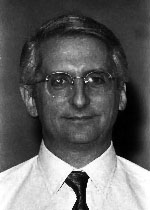Peter Denning, Great Principles of Computing
04-07-2006

Peter Denning
Chairman, Computer Science Department
Naval Postgraduate School
Friday, April 7, 2006
CS 111 at 10:30am
ABSTRACT:
I undertook this project because it seemed that if CS is truly a science we would be able to describe our field in terms of its fundamental principles. All the descriptions of CS I've seen, most notably those encoded into our course titles, describe a technology field infatuated with programming. The external image of our field is, in fact, "CS=programming".
This myth is now proving to be deadly as prospective students wonder if there is a future in a field whose heart and soul can be outsourced to other countries. Enrollments in CS are down 60% in the past four years. The ACM has sponsored my task force to develop a collection of principle-stories as witnessed by those who were most instrumental in their discovery and adoption.
I will describe the great principles framework for computing. I'll say why getting to this framework has been much harder than I expected. I will discuss why this framework is best appreciated by its principle-stories rather than a list of principle-titles. I will illustrate with the story of the principle of locality, which was the subject of my research earlier in my career.
BIO:
PETER J. DENNING is Chairman of the Computer Science Department at the Naval Postgraduate School in Monterey, California. He is also director of the Cebrowski Institute, a research center for information innovation and superiority. He came to NPS in 2002 from George Mason University, where he served as vice provost for continuing professional education, associate dean for computing, and chair of the Computer Science Department in the School of Information Technology and Engineering. He founded the Center for the New Engineer in 1993. He was the founding director of the Research Institute for Advanced Computer Science at the NASA Ames Research Center, was co-founder of CSNET, and was head of the computer science department at Purdue. He received a PhD from MIT and BEE from Manhattan College. He invented the working set model for program behavior and helped establish virtual memory as a permanent part of operating systems. He co-invented operational analysis, an approach to computer system performance prediction. He was president of the Association for Computing Machinery 1980-82. He chaired the ACM publications board 1992-98 where he led the development of the ACM digital library, and chaired the ACM Education Board 1998-2003. He has published 7 books and 300 articles on computers, networks, and their operating systems, and is working on 3 more books. In 2002, he was named one of the top 5 best teachers at George Mason University and the best teacher in the School of Information Technology and Engineering. In 2003, he received one of Virginia's 10 outstanding faculty awards. He holds three honorary degrees, three professional society fellowships, two best-paper awards, three distinguished service awards, the ACM Outstanding Contribution Award, the ACM SIGCSE Outstanding CS Educator Award, and the prestigious ACM Karl Karlstrom Outstanding Educator Award. In 2005 he received an ACM SIGOPS Hall of Fame Award for his 1967 working-set paper.
A reception will be held before the talk in CS 111.